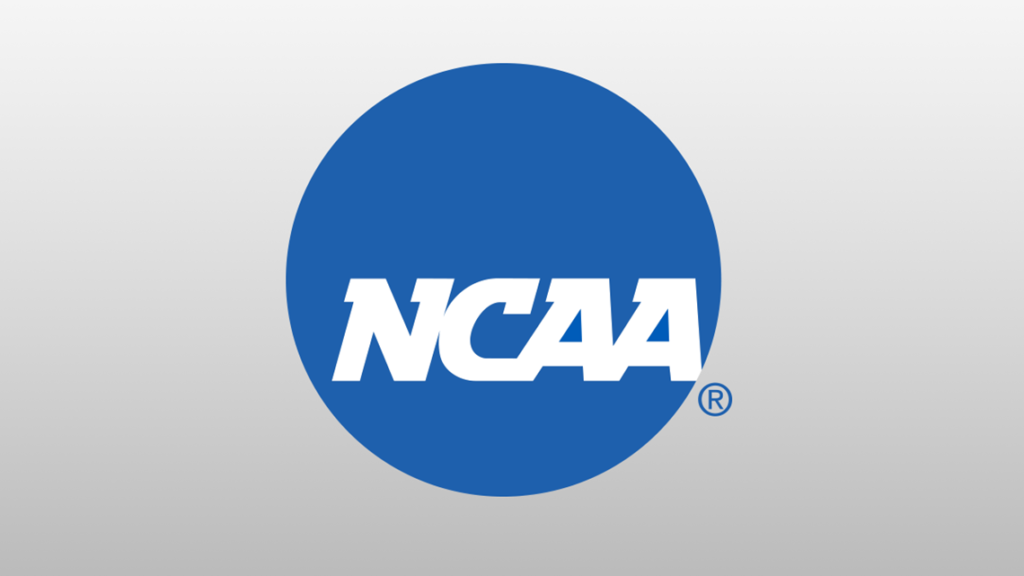The NCAA Eligibility Center has announced that there will be no standardized test obligation to meet NCAA initial-eligibility requirements for students who enroll full time during the 2021-22 academic year while playing Division I or II sports.
Previously, the requirements students needed to meet in order to be able to practice, compete, and receive financial aid were:
- Graduate from high school.
- Complete a minimum of 16 core courses for Division I or II.
- Earn a minimum required grade-point average in core courses.
- Earn a qualifying test score on either the ACT or SAT.
- Request final amateurism certification from the NCAA Eligibility Center.
Athletes who enrolled August 1, 2016 and later also had to meet these requirements:
- Earn at least a 2.3 grade-point average in core courses.
- Meet an increased sliding-scale standard (for example, an SAT score of 820 requires a 2.5 high school core course GPA)
- Successfully complete 10 of the 16 total required core courses before the start of their seventh semester in high school. Seven of the 10 courses must be successfully completed in English, math and science.
Felicia Martin, Vice President of the Eligibility Center, states that the NCAA made this decision while thinking about the health and well-being of incoming students. She says that the NCAA is confident these changes “will help ensure students have a fair opportunity to meet the initial-eligibility standard.”
With this new flexibility, student-athletes enrolling in a Division I school will be academically eligible to compete by earning a 2.3 GPA in 16 NCAA-approved core courses. 10 of these courses must be completed by their seventh semester in high school.
In Division II schools, students will be academically eligible by receiving a GPA of 2.2 in 16 NCAA-approved core courses.
The same standards apply to international students.
These new measures are to be called automatic waivers, meaning students who meet the academic criteria are able to receive an athletic scholarship, practice, and compete in their first year.
Opinions about test scores vary widely from school to school. In mid-July, around 23% of Division I schools adopted test-optional policies for at least one year. 19% have permanent test-optional policies, while 37% state they will still require test scores. The last 21% have unclear policies.
The Division I Committee on Academics and the Division II Academic Requirements Committee plan to discuss having test scores a part of NCAA initial-eligibility standards over this next year.
Felicia Martin commented that “The standardized test conversation isn’t a new point of discussion for our membership. Throughout the years, the requirement for initial eligibility has been examined quite frequently and discussed with our NCAA membership.” Martin states that the NCAA decision will be made in the best interest for incoming student-athletes.
The membership committees also extended the spring/summer 2020 approach to pass/fail grades throughout the upcoming academic year.
Courses completed with a “pass” grade will be implemented by the Eligibility Center toward the core-course requirement. Assigning a value of 2.3 to a student’s passed courses will be determined by whether it would increase or decrease their overall GPA.
Additionally, incoming student-athletes of Division I schools will be allowed no more than 6 core courses completed after starting their seventh semester in high school and before full-time enrollment. The units that are completed before full-time enrollment will be utilized in the Division I academic-redshirt certification.
More information can be found here: on.ncaa.com/EC_COVID.
These changes come as part of a broader national conversation about standardized tests and how effective they are at identifying the highest achievers. Studies have found that socioeconomic status, stereotypes, and cultural biases have created differences in the way the tests are viewed and/or scored that doesn’t always accurately reflect the quality of a candidate.

Thank you for relaying this information. I would also add that it’s becoming more challenging to find standardized tests still being offered. Some parts of the country offered July tests, but most have been canceled since March, and we were just notified that our August date was canceled as well 🙁
Our area has a very high population. If standard tests are required, parents will have fist fights to get their kids in to testing. It would be so ugly.